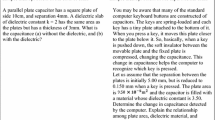Abstract
Process-oriented instruction is defined as instruction aimed at teaching thinking strategies and domain-specific knowledge in coherence. This new conception of instruction is derived from psychological research on the way students learn and on the interplay between self-regulation and external regulation of learning. In the research reported here the learning effects of a process-oriented instructional program for university students were empirically studied. The instructional program consisted of a diagnostic learning style instrument, a learning guide and tutorials. The results showed that the majority of students reported significant general, knowledge, insight and application learning effects. The program effects were typified more by integrating and making usable metacognitive knowledge already present, than by increasing knowledge about new subjects. Evidence for transfer effects was obtained because participants in the program scored better than non-participants on two exams of another course. The learning effects were higher than the effects of an preliminary version of the program implemented with students from an open university. These results support the importance of the process-oriented instructional model. The linking of a thorough diagnosis of personal learning styles to individually tailored instructional measures, turned out to be a powerful way to activate students to reflect on their learning and to develop their mental models of learning.
Similar content being viewed by others
References
Brown, A.L. (1994). The advancement of learning.Educational Researcher, 23(8), 4–12.
Clark, R.E. (1990). When teaching kills learning: research on mathemathantics. In H. Mandl, E. de Corte, S.N. Bennett, & H.F. Friedrich (Eds),Learning and Instruction: European research in an international context. Volume 2.2 (pp. 1–22). Oxford: Pergamon Press.
Cognition and Technology Group at Vanderbilt (1993). Toward integrated curricula: possibilities from anchored instruction. In M. Rabinowitz (Ed.),Cognitive science foundations of instruction (pp. 33–55). Hillsdale, New Jersey: Erlbaum.
Collins, A., Brown, J.S., & Newman, S.E. (1989). Cognitive apprenticeship: teaching the crafts of reading, writing and mathematics. In L.B. Resnick (Ed.),Knowing, learning and instruction — Essays in honor of Robert Glaser (pp. 453–494). Hillsdale, New Jersey: Erlbaum.
de Jong, F.P.C.M. (1993, September).The complementarity of constructivist and self-regulation instructional approaches. Paper presented at the 5th Conference of the European Association for Research on Learning and Instruction, Aix-en-Provence, France.
de Jong, F.P.C.M., & van Hout Wolters, B.H.A.M. (1994). Knowledge construction, self-regulation and process-oriented instruction. In F.P.C.M. de Jong & B.H.A.M. van Hout Wolters (Eds.),Process-oriented instruction and learning from text (pp. 3–12). Amsterdam: VU University Press.
Duffy, T.M., & Jonassen, D.H. (1992). Constructivism: new implications for instructional technology. In T.M. Duffy & D.H. Jonassen (Eds.),Constructivism and the technology of Instruction — a conversation (pp. 1–16). Hillsdale, New Jersey: Erlbaum.
Iran-Nejad, A. (1990). Active and dynamic self-regulation of learning processes.Review of Educational Research, 60, 573–602.
Lonka, K. (1993, September).Activating instruction — How to foster study and thinking skills. Paper presented at the 5th Conference of the European Association for Research on Learning and Instruction, Aix-en-Provence, France.
Marton, F. (1990). The phenomenography of learning — a qualitative approach to educational research and some of its implications for didacties. In H. Mandl, E. De Corte, S.N. Bennett, & H.F. Friedrich (Eds.),Learning and Instruction — European research in an international context. Volume 2.1 (pp. 601–616). Oxford: Pergamon Press.
Marton, F., Dall’Alba, G., & Beaty, E. (1993). Conceptions of learning.International Journal of Educational Research, 19, 277–300.
Palincsar, A.S., & Brown, A.L. (1989). Classroom dialogues to promote self-regulated comprehension. In J. Brophy (Ed.),Advances in research on teaching. Volume 1 (pp. 35–67). Greenwich, CO: JAI Press.
Prawatt, R.S., & Floden, R.E. (1994). Philosophical perspectives on constructivist views of learning.Educational Psychology, 29, 37–48.
Salomon, G., & Perkins, D.N. (1989). Rocky roads to transfer: rethinking mechanisms of a neglected phenomenon.Educational Psychologist, 24, 113–142.
Short, E.J., & Weisberg-Benchell, J.A. (1989). The triple alliance for learning: cognition, metacognition, and motivation. In C.B. McCormick, G.E. Miller, & M. Pressley (Eds.),Cognitive strategy research: from basic research to educational applications (pp. 33–63). New York: Springer-Verlag.
Simons, P.R.J. (1990, December).Transfervermogen [Transfer ability]. Inaugural address spoken at the University of Nijmegen.
Teurlings, C., van der Sanden, J., & Simons, R.J. (1993, September).Learning to use a word processor: an improved Leittext based training. Paper presented at the 5th Conference of the European Association for Research on Learning and Instruction, Aix-en-Provence, France.
Vermunt, J.D. (1989, September).The interplay between internal and external regulation of learning, and the design of process-oriented instruction. Paper presented at the third Conference of the European Association for Research on Learning and Instruction, Madrid.
Vermunt, J.D. (1992).Leerstijlen en sturen van leerprocessen in het hoger onderwijs — Naar procesgerichte instructie in zelfstandig denken [Learning styles and regulation of learning in higher education — Toward process-oriented instruction in autonomous thinking]. Amsterdam/Lisse: Swets & Zeitlinger.
Vermunt, J.D. (1993a). Constructive learning in higher education. In J.K. Koppen & W.D. Webler (Eds.),Strategies for increasing access and performance in higher education (pp. 143–157). Amsterdam: Thesis Publishers.
Vermunt, J.D. (1993b, July).The interplay between internal and external regulation of constructive learning. Paper presented at the IIIrd European Congress of Psychology, Tampere, Finland.
Vermunt, J.D. (1994). Design principles of process-oriented instruction. In F.P.C.M. de Jong & B.H.A.M. van Hout Wolters (Eds.),Process-oriented instruction and learning from text (pp. 15–26). Amsterdam: VU University Press.
Vermunt, J.D., & van Rijswijk, F.A.W.M. (1988). Analysis and development of students’ skill in self-regulated learning.Higher Education, 17, 647–682.
Volet, S.E. (1991). Modelling and coaching of relevant metacognitive strategies for enhancing university students’ learning.Learning and Instruction, 1, 319–336.
Volet, S.E. (1993, September).Improving learning and instruction at university through collaborative experimental research. Paper presented at the 5th Conference of the European Association for Research on Learning and Instruction, Aix-en-Provence, France.
Author information
Authors and Affiliations
Rights and permissions
About this article
Cite this article
Vermunt, J.D. Process-oriented instruction in learning and thinking strategies. Eur J Psychol Educ 10, 325–349 (1995). https://doi.org/10.1007/BF03172925
Received:
Issue Date:
DOI: https://doi.org/10.1007/BF03172925




